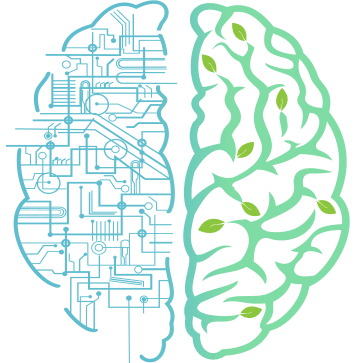The orbitofrontal cortex (OFC) is an important part of the brain that plays a crucial role in decision making, impulse control, understanding the consequences of our actions, and regulating emotions such as fear, anger, and anxiety. Thus, it is important to take care of our OFC by getting enough sleep, exercise and a healthy diet.
The orbitofrontal cortex (OFC) plays a crucial role in decision making, as it helps weigh the pros and cons of different options, such as evaluating the potential rewards and punishments of different ice cream flavors before making a decision.
The OFC also plays a big role in social cognition, which is how we understand and interact with other people. For example, at a party, when deciding whether to talk to a new person, the OFC will evaluate the potential rewards and punishments of initiating a conversation. It might be thinking, “If I talk to them, I might make a new friend, but if I don’t, I might miss out on an opportunity.”
Exercise, Sleep and Diet are important to keep the OFC healthy. Regular physical activity, such as:
- Tai chi
- aerobic exercise
- resistance training
- high-intensity interval training
These practices can increase blood flow to the brain and improve cognitive function. Sleep is crucial for the brain to process information and consolidate memories. Eating a healthy diet with fruits, veggies, and lean protein, as well as adequate antioxidants and Omega-3 fats, and limiting processed foods and saturated fats, will help your brain function. This can be seen in the Mediterranean diet, which is a good example of this. Keeping your brain active and challenged with activities such as puzzles, reading, and learning new skills can help maintain cognitive function as we age.
can increase blood flow to the brain and improve cognitive function. Sleep is crucial for the brain to process information and consolidate memories. Eating a healthy diet with fruits, veggies, and lean protein, as well as adequate antioxidants and Omega-3 fats, and limiting processed foods and saturated fats, will help your brain function. This can be seen in the Mediterranean diet, which is a good example of this. Keeping your brain active and challenged with activities such as puzzles, reading, and learning new skills can help maintain cognitive function as we age.
Certain herbs could also have positive effects on the orbitofrontal cortex, or OFC. But before you go out and start taking these herbs, it’s important to know that we need more research to fully understand how they work and what the safe and effective doses are. Examples of herbs that have been studied for their potential effects on the OFC include:
- Curcumin
- L-Theanine
- Ginkgo Biloba
- Ashwagandha
- Rhodiola Rosea
Remember to consult with a healthcare professional before taking any herbal supplements.
Here is a fun fact about the orbitofrontal cortex (OFC): The OFC is often referred to as the “moral center” of the brain because it plays a key role in understanding social norms and evaluating the potential moral implications of different actions. Studies have shown that people with damage to the OFC can have difficulty distinguishing between right and wrong and may exhibit inappropriate social behavior. So, you can say that this small part of the brain helps us to be a good person and make moral decisions.






